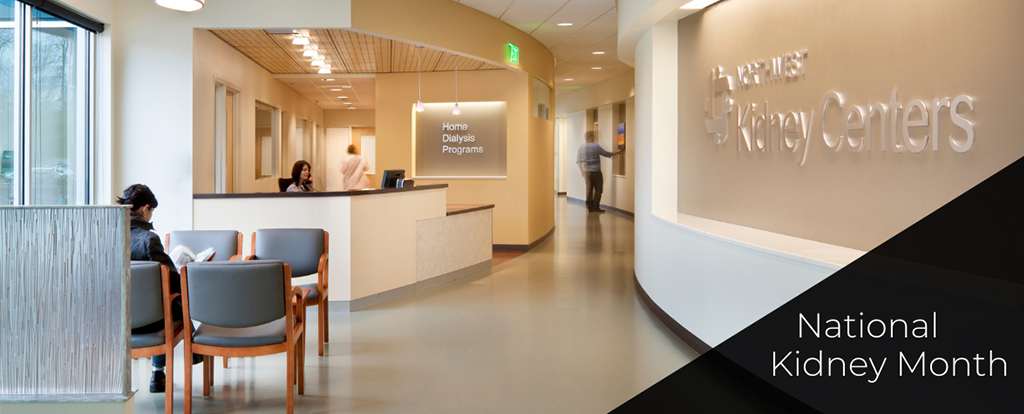As National Kidney Month comes to a close, we wanted to share some insights we’ve gained from our work with dialysis clinics.
One of the most important things we’ve learned is that kidney disease is deeply personal for everyone who has it. And that’s why these facilities need to be designed with both the patients and the staff in mind. Patients will benefit from privacy and flexibility, while staff environments are most effective when they allow for actively observing the patients.
We also know that a dialysis clinic must be easily accessible and comfortable for patients, as they might be frequenting it several times a week. We pay careful attention to the flow of patients and families from the waiting area to their treatment areas in a dialysis clinic. With a treatment area, we think about spatial perception: the way people perceive the space around them. Patients are more likely to feel at ease in an area that is soothing and well-illuminated, while they may feel overwhelmed and uncomfortable in a large, institutional, and either under-or over-lighted area.
People who receive dialysis treatments also often find they feel more sensitive to cold. When designing the Northwest Kidney Center in Renton Washington, we included a vestibule to prevent cold air bursts as people enter and exit the facility. The actual layout of this clinic was also thoughtfully planned; all spaces are easily accessible from one another, making it much easier for patients to navigate the facility.
Since dialysis patients often spend a few to several hours receiving treatment, we consider how color and materials will be perceived by those who will be in the space. Lighter-toned colors reflect more light and create a balanced effect of indirect light ambiance. The right choices of colors and material textures help create a comforting environment that can ease stress for patients.
While these are just a few of the considerations we take into account when designing a dialysis clinic, every detail makes a difference in how welcoming and comfortable patients feel.
National Kidney Awareness Month

